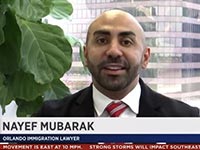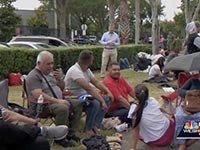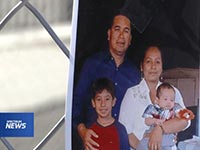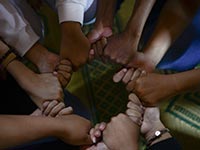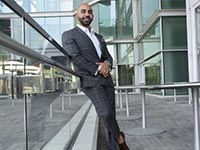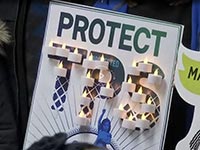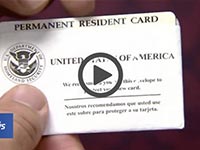But now that a modified version has gone into effect, she said she is sad that her relatives in Sudan — and people in all six countries — may not have the chance she had to come to America.
“I really don’t understand the emphasis on the travel ban, a focus on keeping others out when we could work together,” said Ibrahim of Orlando, who is from Sudan but has lived in the U.S. for more than four decades.
The current version of the travel ban did not create the airport chaos that ensued during the first ban in January, when people were detained and deported and thousands of visas were canceled before it was struck down in court.
Even so, Central Florida Muslim organizations have been holding emergency sessions where people can talk to immigration lawyers to try to understand the rules and learn their rights.
The 90-day ban covers Iran, Libya, Somalia, Sudan, Syria and Yemen. The Trump administration has said the nations have ties to terrorism and that it needs that time to evaluate security vetting procedures to protect Americans. In addition, refugees from any country are barred for 120 days.
Central Florida Muslims say they feel unfairly judged.
“Going after a single religion and saying to them they are not welcome in the United States and excluding people on the basis of religion is deeply troubling,” said Imam Abufarah Helmi Elagha, executive director of the American Muslim Leadership Center near Kissimmee.
Rasha Mubarak, a spokeswoman for the Central Florida chapter of the Council on American-Islamic Relations, said some Muslimsare afraid to leave the U.S. even if they’re not from the countries that were singled out because they fear other nations could be added.
“We have to prove this is a condemnation of a religion,” she said. “This is not a case of extreme vetting. We call on the administration to withdraw these arbitrary guidelines.”
The original version of the travel ban, signed by Trump on Jan. 27, included Iraq. The order indefinitely barred Syrian refugees and gave preference to refugees who were religious minorities facing persecution.
The U.S. Supreme Court in June allowed the government to reinstate a limited version of the ban, with an exception for foreigners with a “bona fide relationship” to Americans or American entities. The court is expected to hear a challenge to the ban in the fall.
The Trump administration interpreted the order to allow people with close family in the U.S., including parents, spouses, children, adult children and their spouses, siblings and in-laws. People with employment and university admission also would qualify. People engaged to Americans were added to the list in the hour before the ban took effect.
Grandparents, grandchildren, aunts, uncles, nieces, nephews, cousins, brothers- and sisters-in-law were not included, leading immigration advocates and others to decry the rules.
Dr. Shakil Ahmed, chairman and president of the American Islamic Community Centers in Longwood, said the ban has again created an excuse for Islamophobia that has intimidated some Muslims,including everyone from recent immigrants to established business owners and professionals. Women who wear the hijab, a head covering, are among the most vulnerable, he said.
“We don’t just want to be looked upon as someone who is different,” said Ahmed, a medical doctor. “We belong to the fabric of society.”
The state of Hawaii and immigrant groups that won lower court injunctions against the ban have said the administration is violating the Constitution by targeting Muslim-majority countries. They say the president has focused on them as part of his campaign promise to suspend all Muslim immigration.
U.S. Rep. Darren Soto’s office has received only one inquiry from a constituent concerned about the current ban — a University of Central Florida student whose girlfriend is scheduled to return from Iran at the end of July, district director Alex Barrio said.
Most of the people affected by the original ban were on visas, and that portion of the edict has been eliminated, said Barrio, whose boss represents southeast Orange County, all of Osceola and half of Polk.
Nonetheless, “We remain greatly concerned about the ban and are opposed to it,” said Soto, a Democrat.
Orlando immigration lawyer Nayef Mubarak, who advised people at forums at the American Muslim Community Centers and the Muslim Academy of Greater Orlando, questions why Trump hasn’t revamped security procedures since he’s been in office instead of relying on the ban that some say is politically motivated.
“I think the biggest thing we’re seeing is confusion,” he said. “I think it’s confusion and a little bit of fear.”
For Orlando resident Sarah Elbadri, the issue boils down to seeing other people denied the American dream she pursued when her parents brought her to the U.S. when she was 4 years old.
“This should not be a part of how we create policy,” said Elbadri, who is running for an Orlando City Commission seat in November.
The Los Angeles Times contributed to this report. sjacobson@orlandosentinel.com or 407-540-5981
Copyright © 2017,Orlando Sentinel
Source: Orlando Sentinel


